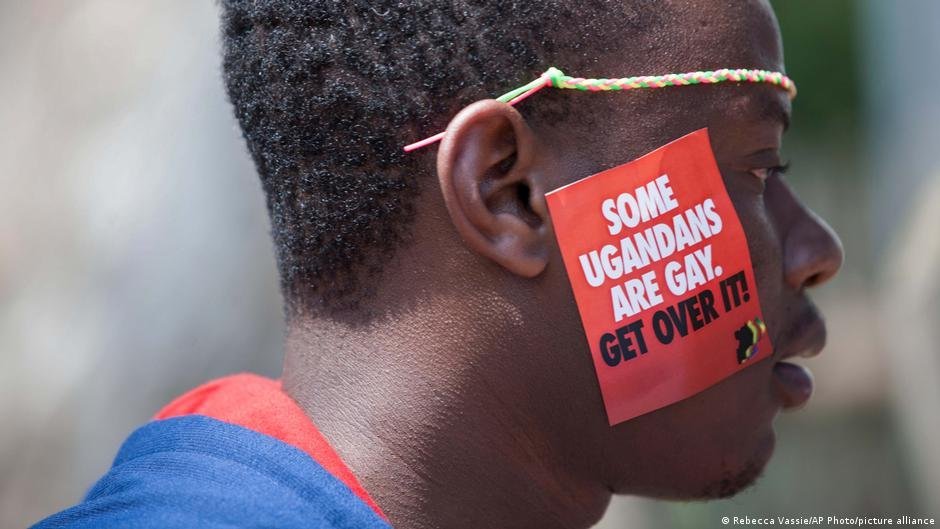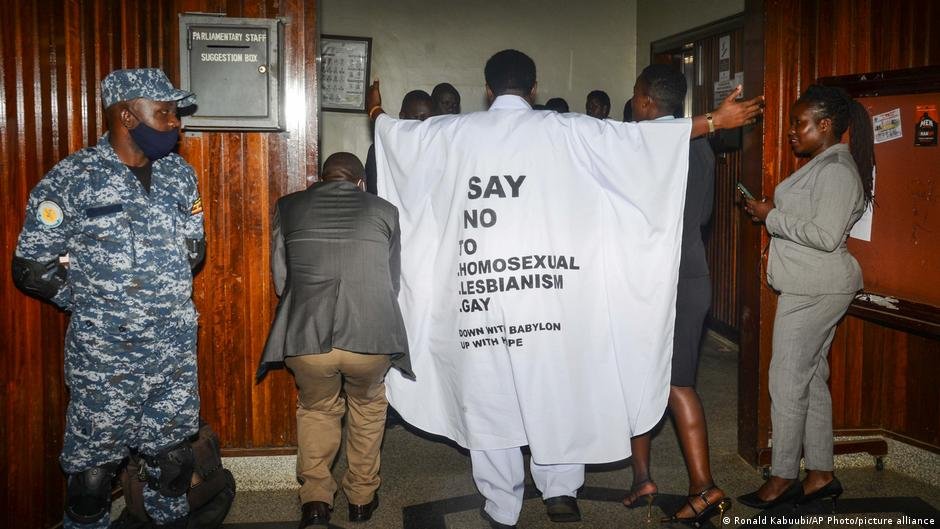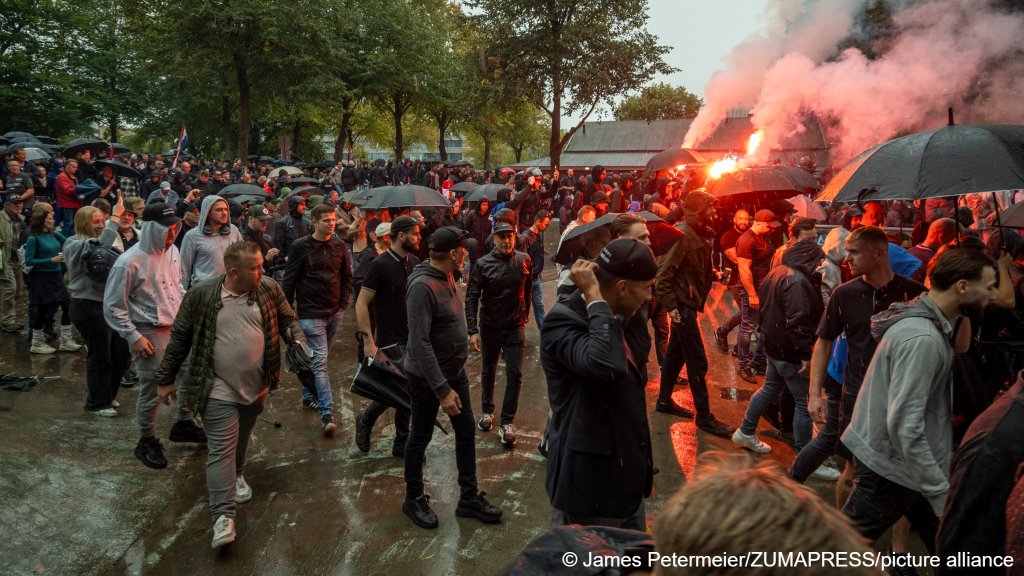The announcement comes on the heels of an agreement between the Netherlands and Uganda, which drew concern from human rights groups. Under a "small pilot project" agreement, rejected asylum seekers from countries neighboring Uganda will be sent from the Netherlands to a deportation center in the East African country.
Failed asylum seekers from the LGBTIQ+ community, as well as other groups at risk of persecution in Uganda, will not be sent to deportation centers that are set to be established in the East African country, the local Dutch newspaper NL Times reported on October 2.
The interim minister, David van Weel, confirmed the protection safeguard will prevent groups at risk under Ugandan laws from being forcibly sent to the country.

The announcement comes on the heels of an agreement between the Netherlands and Uganda. Under the agreement, unsuccessful asylum seekers from countries neighboring Uganda who must leave the Netherlands but cannot be returned directly or voluntarily will be temporarily placed in deportation centers in the East African country before returning to their countries of origin.
The plan, which was reportedly outlined in a letter of intent during the United Nations General Assembly in New York, was signed by Dutch Migration and Foreign Affairs Minister David van Weel and his Ugandan counterpart Odongo Jeje Abubakhar.
The Dutch ministry confirmed the "small pilot project" as a transit center for a limited number of people whose asylum claims were rejected. The specific details of the plan are reportedly in the early stages and must be aligned with Dutch, European Union, and international law.
According to Van Deel, the government is in active discussions with the European Commission and various UN agencies to ensure the initiative complies with global standards.
In March, the European Commission proposed allowing member states to set up migrant centers in non-EU countries for those rejected for asylum.
A similar migrant offshoring deal between the UK and Rwanda faced legal setbacks and was ultimately scrapped.
Read AlsoNetherlands and Uganda sign preliminary deal on asylum seeker transfers center
Deal draws concern from human rights groups
The proposed deal between the Netherlands and Uganda has drawn criticism from various human rights groups. Amnesty International described the plan as "far from positive". Citing Uganda’s anti-LGBTQIA+ laws, Amnesty International warned that the plan would "likely result in people being arbitrarily detained or returned to countries where they face danger."
The Dutch Council for Refugees has cited similar concerns because of Uganda’s reported human rights record and the inability of the Netherlands to guarantee the safety of people sent to Uganda.
"We are concerned about human rights compliance in Uganda, where torture is practiced in prisons, minorities are oppressed, and LGBTQ+ legislation is draconian," the group said in a statement.
Statistics from the Asylum Information Database (AIDA) indicate that last year, the Dutch government decided on 21,180 total asylum cases. Of that number, 5.225 applications -- roughly equivalent to about 25 percent -- were rejections. As a statistical database, AIDA consolidates refugee and asylum data from 19 EU member states and 5 non-EU countries, namely Switzerland, Serbia, Turkey, Ukraine, and the United Kingdom.
Fleeing from anti-LGBT laws in Uganda
In 2023, Uganda passed laws criminalizing same sex activities with fines and jail time of up to 20 years. The law extends to people seen as supporting LGBT rights by for example, renting out a flat to a gay couple.
Journalists may also face imprisonment for writing, publishing, broadcasting, or distributing content that is perceived to be advocating for the rights of LGBTQIA+ people.

Thousands of queer and non-gender-conforming Ugandans fled the country in fear of persecution.
Two years on, the Ugandan law has had a knock-on effect on other African countries such as Ghana and Senegal, restricting the rights of gay, lesbian, and trans people.
Hate crimes that are reported as both state-sponsored and social are also amassing in Burundi, Nigeria, Zimbabwe, and Kenya, forcing more and more people to seek safety elsewhere.
In their 2024 report, "Laws on Us", the International Lesbian, Gay, Bisexual, Trans, and Intersex Association ILGA World, which is comprised of more than 1,900 organizations from over 160 countries and territories, reported that "relentless opposition" is the constant undercurrent that has underpinned legal debates on LGBTQIA+ rights.
ILGA noted that countries in Africa and the Middle East are of particular concern as laws and protections favoring gays, lesbians, and trans people are increasingly being rolled back in several nations.
Read AlsoDiscrimination persists against LGBTQ+ refugees – both at home and in host countries
Anti-migrant sentiment flaring in the Netherlands
Last month, an anti-migration protest in the Hague organized by the right-wing group Els Rechts descended into violence.
The protest drew an estimated 1,500 participants, some reportedly dressed in black and carrying Dutch flags as well as banners linked to far-right groups.
Rioters allegedly threw stones and bottles at the police and set a police car on fire, and also briefly blocked a motorway. The rioting was reported to have resulted in injuries to at least 11 people, including police officers and journalists.

Days after the protest, the Council of Ministers approved draft legislation that would increase the minimum required period of legal residence for naturalization from five to ten years.
The proposal will be subject to a two‑month online consultation period before it is sent to the new parliament.
Read AlsoWhy are people protesting against asylum in the Netherlands?
